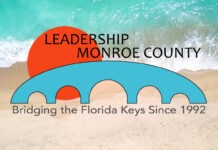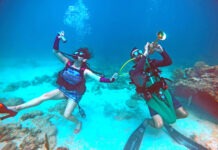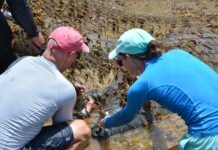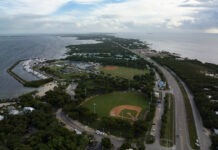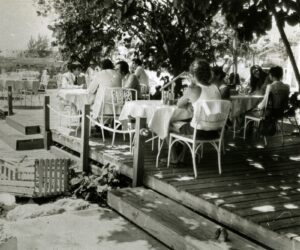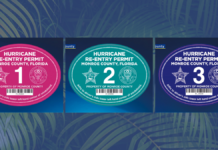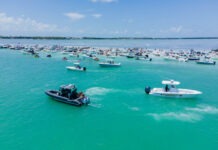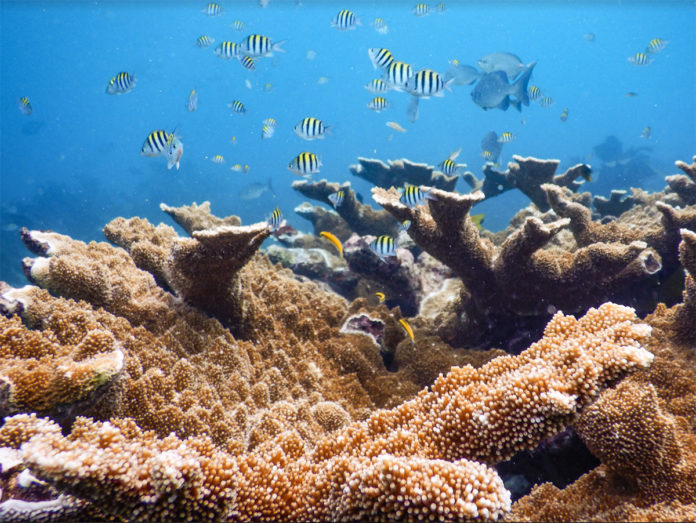
The Marine Preservation Society of the Florida Keys (MPS) is a new nonprofit organization working to steward our beautiful Florida Keys waters. In an island chain boasting many marine organizations, MPS is already proving itself different.
We may recognize the faces on MPS’ team and board; they’re all past leadership from the National Marine Sanctuary Foundation, Florida Keys Chapter. However, they’ve reorganized – into MPS, a new and autonomous nonprofit. They’ve also sharpened their mission and created organizational processes that give them a lot of freedom of action. All these changes, they believe, will be beneficial to the chapter, the Florida Keys National Marine Sanctuary (FKNMS) and the broader community.
A key organizing principle is to keep preservation efforts and fund use local. On New Year’s Day, this decision proved a great one when a 1,000-pound fishing net with an attached 1,000-pound buoy was discovered, snagged precariously near the Eastern Dry Rocks Sanctuary Preservation Area in the FKNMS.
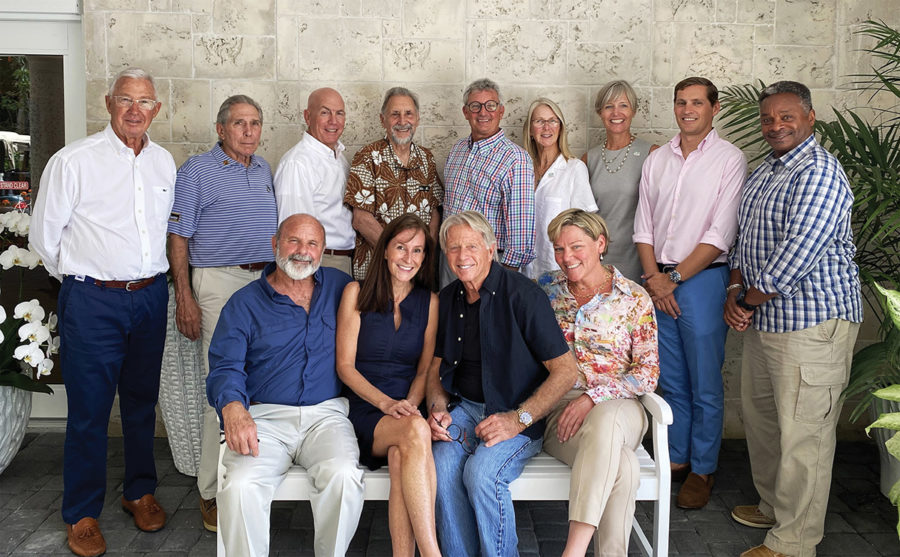
The sanctuary team went into problem-solving mode, contacting potential salvors to obtain a quote for removal.
“The sanctuary contacted other resources prior to the Marine Protection Society of the Florida Keys, but lack of funding and/or protocols were prohibitive to the immediate removal needed,” said Sara Rankin, MPS volunteer director. “The request for assistance was passed to the Marine Preservation Society board of directors and approved within the hour, demonstrating our new role of being local, nimble and responsive.”
The board considered the threat heightened because of the net’s proximity to a restoration area with roughly 30,000 outplanted baby corals. These are a part of the massive Mission: Iconic Reefs coral restoration effort underway to rescue and save the Florida Reef Tract. With a weather forecast of increasing winds over the weekend, MPS’ board determined that the net needed to be removed immediately; they secured funding and arranged logistics.
By the next morning, the salvor was on the water; it took a diver less than 10 minutes to free the large net.
“Had the net loosened with the incoming winds, its next stop was entanglement in the coral nurseries of Eastern Dry Rocks,” Rankin said. “All believe extensive damage would have occurred.”
Key West Harbor Services retrieved and hauled the net to its Stock Island facility, where it was estimated to weigh more than 1,000 pounds and measure more than 30 feet long.
“It’s a type of gill net used on commercial fishing boats, which are prohibited in state of Florida waters,” said Lisa Symons, sanctuary regional response coordinator. “Their use is regulated in federal waters. … We are working with NOAA oceanographers to try to determine where it may have been lost or cut loose.”
The unidentified boat from which the net came is subject to civil penalties, and anyone with information is encouraged to call NOAA’s law enforcement hotline at 800-853-1964.
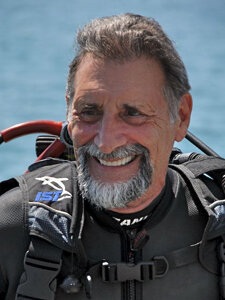
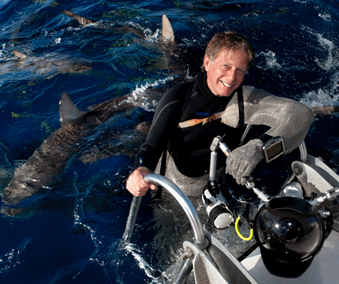
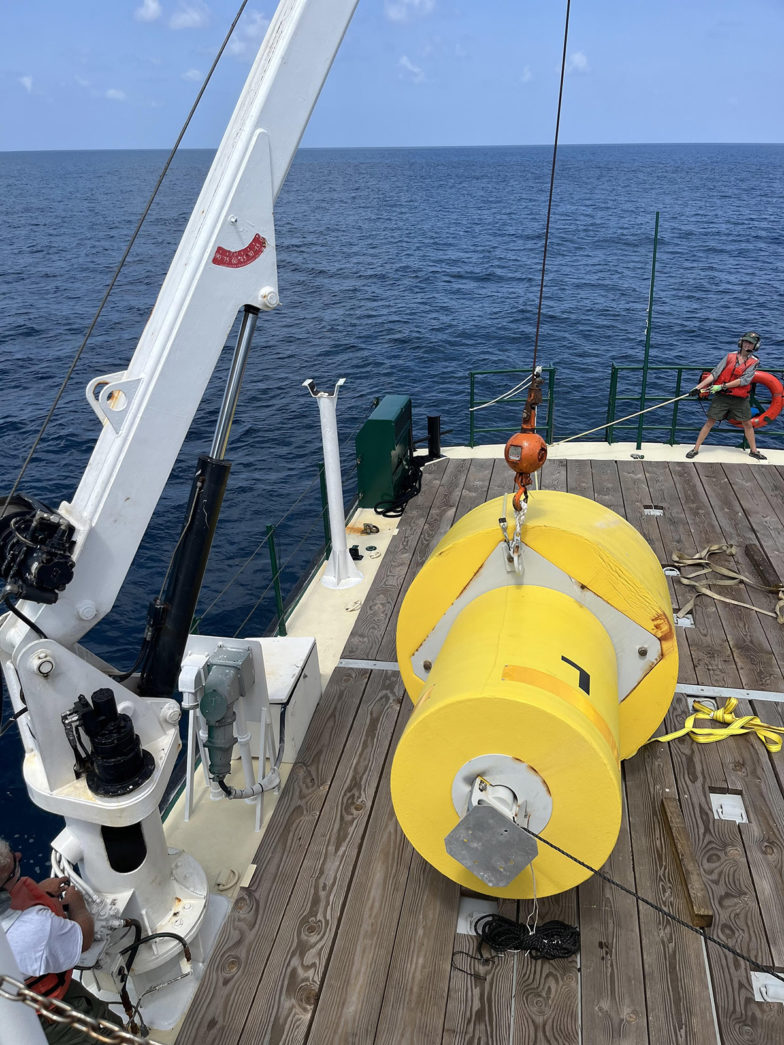
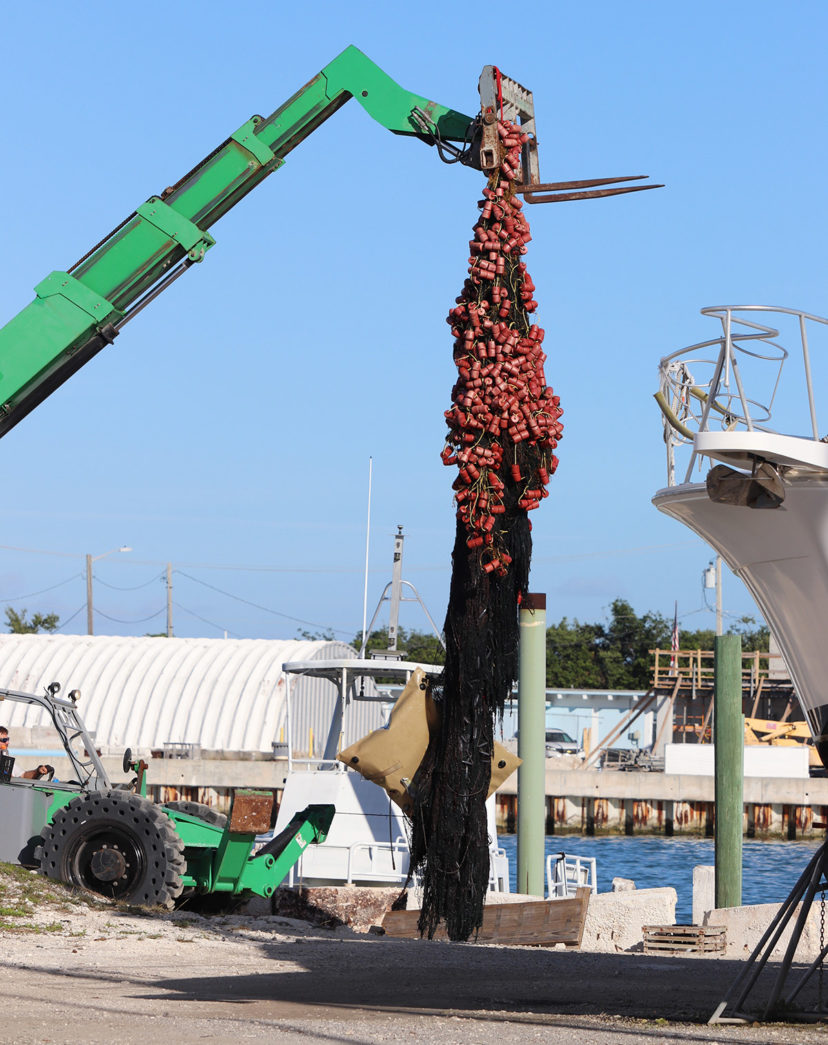
“We live here and give here,” added MPS chairman Tom Davidson Jr. “Reacting quickly to this kind of need is at the heart of our mission.”
This type of rescue operation is precisely why MPS was created. While its mission remains consistent with the preservation and restoration of the Florida Keys marine ecosystem, using private and public engagement, what’s different is the local focus and efficiency in operations.
“By bringing funds local, the organization is more efficient,” said Kurt Tidd, MPS vice chairman. “We are deeply connected in the community and collaborate with all individuals and organizations. We make common-sense decisions right here. The decision to work real-time, hyper-local and with laser focus just makes sense – not just for us, but for those who want to see the greatest impact for their time and their financial support.”
MPS also functions without administrative expenses. The board of directors are supporting the organization’s day-to-day needs, allowing 100% of financial support to go straight to the marine ecosystem. Rankin added, “The difference is most pronounced in that the organization currently acts as a conduit, getting dollars to sanctuary needs without reserving any funds for themselves or supporting efforts elsewhere. Currently, every penny goes to the mission.”
MPS remains a nonprofit partner with the FKNMS, funding its unfulfilled needs – like the shrimp net removal. Rankin added, “We also carefully crafted our priorities to be able to reach beyond the sanctuary in instances where factors outside of the sanctuary potentially cause issues or harm here as well.”
This new approach has proven very appealing to supporters, and MPS is currently welcoming others to become founding members. More information is available via email to Rankin at sararankin@marinesociety.org.

